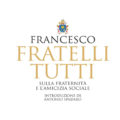The recent elections highlighted the UK’s commitment to democracy and freedom, and we will see this in action again when a general election is called. We may not like the candidates with which we are presented, but we can peacefully change our government and we can participate in campaigns and in the selecting of candidates without fear. Candidates from many parties have the opportunity to participate. Personally, I am grateful for the chance to vote for my chosen representatives.
This is not true everywhere in the world, including in the so-called “international city” of Hong Kong from where I come. There, the totalitarian Chinese Communist Party (CCP) regime dictates candidates and suppresses dissent by imprisoning those who express views contrary to the authorities.
The European Union Parliament’s recent decision to call for sanctions against Hong Kong officials is a significant step that underscores the gravity of the situation in the city. This move signals a collective disapproval of the erosion of freedoms once enshrined under the “one country, two systems” framework.
As I reflect upon the unfolding situation in the city that I once called home, particularly the introduction of the second national security law known as Article 23, I cannot help but feel a deep concern. The Hong Kong government claims this law only targets “a very small number” of people who are deemed to be jeopardising national security, but it has been met with scepticism both domestically and internationally.
My living experience of the situation is one rooted in personal loss and the broader ramifications of a law that cast a shadow far more expansive than the Hong Kong government would have us believe. The term “a very small number” has become a refrain used to downplay the profound impact of the law. Yet, as someone who has witnessed the exodus of over 190,000 Hong Kongers to the UK, including myself, I find this characterisation to be deeply misleading.
Having grown up surrounded by the sights and sounds of Hong Kong’s police force, I never imagined a day would come when I’d be forced to distance myself from the city. It was a reality I couldn’t have fathomed—my father, relatives, and several close friends opted to cut ties with me.
On the 24th of March, following Article 23’s implementation, my father reached out, urging me to limit our communication. As a retired police officer, he feared that maintaining contact with me, now residing in the UK, could jeopardise his monthly police pension.
Simultaneously, I attempted to share this distressing news with my friends in Hong Kong but received no response. It became painfully clear that none of my friends and relatives wished to maintain any association with me.
The reality is that the second national security law has severed connections between people in Hong Kong and the outside world. My father, a retired police officer, implored me to limit our communications to protect his pension, highlighting the extent of fear that now permeates the city. Meanwhile, my attempts to reach out to friends in Hong Kong were met with silence, a stark reminder of the chilling effect the law has had on everyday lives.
Amidst this, I find this dilemma echoing the sentiments of Benedict Rogers, Co-founder and Chief Executive Officer of Hong Kong Watch, who rightly pointed out in his book “The China Nexus: Thirty Years In and Around the Chinese Communist Party’s Tyranny“: “the sooner the rest of the world stands up and stops kowtowing to the tyrants in Beijing, the better.” His words resonate with the situation, as they capture the urgency of confronting the narrative woven by the CCP and the Hong Kong government.
Drawing upon the wisdom of sacred scriptures, I am reminded that leadership must be anchored in truth and justice. The European Union’s stance in calling for sanctions seems to affirm the Biblical principle that nothing hidden will not be made manifest. As a believer, I find solace in these teachings that advocate for righteousness and condemn deceit.
Misconception stains not only the sceptre of authority but also the very fabric of society. The EU Parliament’s actions are not just a political reprimand but a testament to the enduring need for truth in leadership. This principle is as relevant today as it has ever been.
Whether we are informed by faith or a commitment to universal human values, we all must stand in solidarity with those who seek honesty in governance. We must continue to champion the cause of truth and ensure that the dignity of every individual is respected and the rule of law prevails. This imperative guides my writing and, indeed, my hope for Hong Kong’s future.
Returning to the UK, in this season of elections, I would implore my now fellow countrymen to value our democracy. It is the method by which we change governments peacefully and is the best method we have for ensuring that our governments promote human dignity. Its imperfections can best be remedied by more people of goodwill taking part in the processes at every level – voting, joining political parties and helping to select candidates, and standing themselves at local and national level. Many people in the world do not have that opportunity.
—
Photo: “2019-10-01 Demonstration Hong Kong 11” by Studio Incendo is licensed under CC BY 2.0







